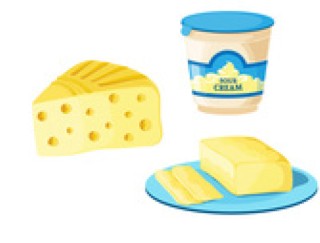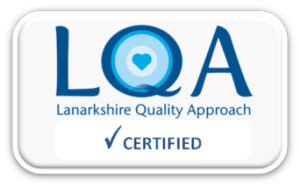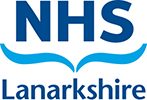Get more in - for people with Diabetes
Information for patients
NHS Lanarkshire Dietetic Department
PIL.GMIDIB.18_21972.L
The information in this leaflet will help you if you have diabetes and are having difficulty eating adequate amounts. This may have led to unintentional weight loss.
It will provide you with hints and tips to help you to increase your dietary intake and help ensure you are getting a range of essential nutrients to keep you well nourished and maintain a healthy weight. It aims to promote advice on increasing the nutrients in the food you eat and the fluids you drink.
General tips
- Aim for regular smaller meals and snacks throughout the day as they may be easier to take
- Try to have a varied diet
- Try to have more nourishing drinks (see page 4) instead of filling up on diet drinks and water
- Take drinks after meals so you don’t ruin your appetite
- Consider the use of ready meals or food ordering services
- If you find your appetite is affected by strong cooking smells – remember cold foods can be just as nourishing. For example: sandwiches, cheese & biscuits and cereals
- Consider how you cook your food – frying food will increase calorie intake. For example: fried fish, eggs , French toast, cooked potatoes
- Taking a small alcoholic drink prior to your main meal may help stimulate your appetite (It is best to check first with your doctor as alcohol may not be advisable with some types of medications or certain medical conditions)
If you are only managing small amounts it is important to make sure your meals and snacks are as nourishing as possible. Here are some further ideas for adding extra energy (calories) and nutrients to your diet.
Milk
If using skimmed or semi skimmed milk replace this with full cream milk (or jersey gold top) as this will help increase calories. The extra fat will not affect your blood glucose levels. Make up hot drinks such as malted or chocolate drinks with milk rather than water.
Fortified milk
You can make your own nutritious drink at home by simply adding dried milk powder to full cream milk. We suggest adding between 2-4 tablespoons of dried milk powder to each pint of full cream milk (570ml).
This can be used as a drink on its own or can be used in drinks such as tea and coffee, puddings, sauces, breakfast cereals and soups. Aim to use one pint of fortified milk daily.
You may want to flavour your milky drinks with your favourite flavourings e.g. ice cream, coffee or milkshake powder or syrup.
You can also buy some nutritional supplement drinks (‘build up drinks’) such as Complan or Meritene from a chemist or supermarket.
Food Fortification
Food fortification advice for people with diabetes focuses on increasing the energy (calorie) and protein content of your diet without significantly increasing the amount of food you have to eat.
- Use full fat products such as butter, margarine, mayonnaise, cheese and yoghurt
- Add mayonnaise or salad cream to sandwich fillings, potato fillings and salads
- Add grated cheese to potato, pasta, vegetables, sauces, scrambled egg, beans, soups, fish and French toast
- Add cream (double cream has more calories) or evaporated milk to drinks and puddings. For example tinned or stewed fruit, jelly, milk puddings, soups & sauces, cereals and drinks
- Add butter to potato, vegetables, biscuits, cakes and scones
- Add 1 tablespoon of dried milk powder to milk puddings, soups & sauces.
- Add olive oil to vegetables, potatoes and salads.
- Try using avocados, nut butters and nuts.

Nourishing snacks
If you are unable to eat enough at mealtimes it would be helpful to include nutritious snacks in between meals.
The following snack suggestions will provide extra calories and nutrients:
- Biscuits with cheese and butter
- Creamy soups
- Thick and creamy yoghurt
- Nuts
- Pancake, crumpet, small scone, fruit loaf, teacake or small slice of cake such as Madeira or gingerbread
- Buttered toast with cheese, peanut butter or jam
- Small trifle, custard or rice pot
- Savoury snacks or crisps
- Milky drinks
- Ice cream
- Sandwiches
Blood Glucose control
Good blood glucose control will help when trying to maintain your weight or prevent further weight loss
You may find by making the changes to your diet included in this leaflet your blood glucose levels may be affected. It is not advisable to withhold food when your blood glucose levels are raised. However it may be that you need a review of your diabetes medication or insulin to help improve this. If you have any concerns please contact your healthcare provider for further advice.
Pub. date: September 2020
Review date: September 2022
Issue No: 02
Reference: PIL.GMIDIB.18_21972.L
20_15331
If you need this information in another language or format, please e-mail:





